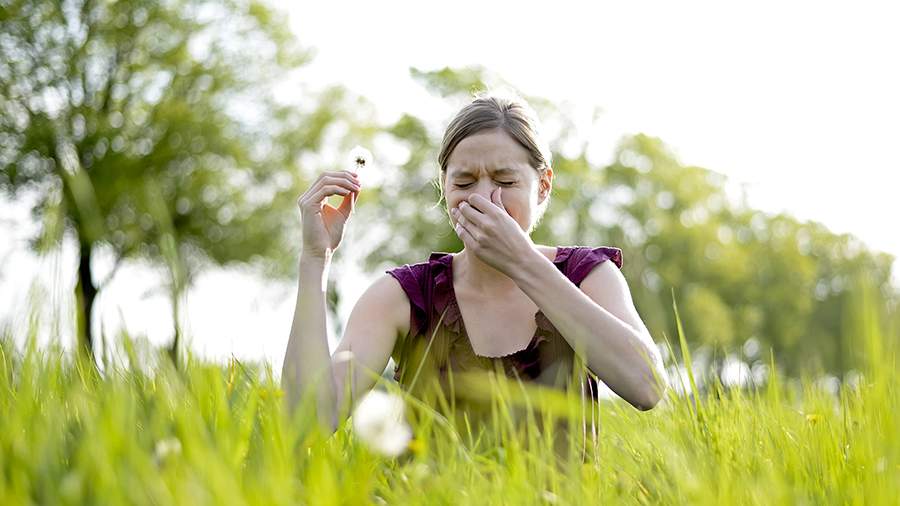The expert admitted the possibility of developing pollen allergies at any age.

Pollen allergy can develop at any age. On May 6, Alexandra Gornak, an allergist and immunologist at the Sberbank Health medical company, told Izvestia.
"The development of an allergy, even if it did not exist before, is possible at any age. It most often occurs in childhood or adolescence, but it may occur for the first time in an adult. Among the reasons, one can mention a genetic predisposition, contact with new allergens, and changes in environmental conditions," the expert said.
She added that an allergic reaction to pollen is manifested by various symptoms that depend on the individual characteristics of the body.
"Among the most common are stuffiness, nasal discharge, itching in its cavity, sneezing, as well as lacrimation, redness of the mucous membranes of the eyes and their itching. In case of a tendency to allergic manifestations on the part of the mucous membranes of the eyes, corneal inflammation may be a complication," the doctor emphasized.
To reduce the risk of developing allergies, she advised reducing the time spent outdoors in windy weather. Indoors, the doctor recommended not to open windows, especially during the day, and if possible, use special devices to purify the air, such as a breezer.
"After visiting the street, it is recommended to immediately take off clothes, wash them and take a shower to wash off allergens. It is also important to note that it is not necessary to maintain a strict diet, but it is worth excluding foods that cause cross-allergic reactions with plant pollen," she said.
Nadezhda Logina, Candidate of Medical Sciences, immunologist and allergist, noted that birch trees are currently actively blooming, the season of which begins in April.
"Some plant varieties bloom until the second half of May. Now the concentration of pollen is decreasing, the peak of flowering is the beginning and middle of April," the expert said.
She recalled that other types of allergens, such as industrial dust, are also always present in the air.
"All this rises into the atmosphere and can provoke an exacerbation of specific allergic reactions both to birch pollen, the most active allergen at this time, and to other allergens. At this time, the concentration of mold fungi in the air is also increased. Early spring and late autumn are always accompanied by their concentration," the doctor noted.
The doctor recommended contacting an allergist to accurately determine the factor that provokes an allergic reaction.
Lyubov Stankevich, Director of Laboratory Medicine and Production at the medical company LabQuest and Q Clinic, Candidate of Medical Sciences, explained to Izvestia on May 2 and told Izvestia about the features of cross-allergy. According to her, it occurs when the human immune system reacts not only to a specific allergen, but also to other substances with a similar molecular structure. The body perceives them as a "familiar" threat. For example, cross allergens of birch include almonds and apples.
Переведено сервисом «Яндекс Переводчик»

